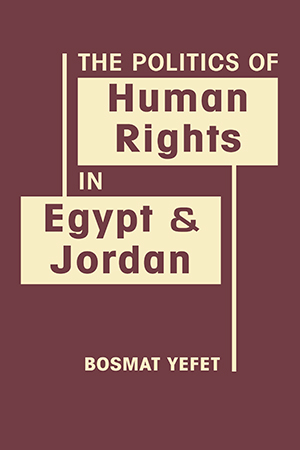Why did human rights claims have such a limited impact on the authoritarian status quo in the Middle East prior to the Arab Spring—and why are they so often thwarted now? What factors have shaped human rights debates and outcomes in the region? Addressing these questions, Bosmat Yefet offers a comparative analysis, both empirically grounded and theoretically sophisticated, of the forces variously supporting and resisting the full embrace of human rights in Egypt and Jordan since the 1990s.
Bosmat Yefet teaches at Ariel University. Her recent research focuses on the Coptic diaspora and the struggle for Coptic rights in Egypt.
Also of interest:
Human Rights, Revolution, and Reform in the Muslim World by Anthony Tirado Chase
"Excellent.... [Yefet] has made an important contribution to the literature on both Middle Eastern politics and human rights. Highly recommended."—Choice
"This is a book for which many have been waiting: an engaging account of the role of human rights in recent events in two key Arab states.... It is important both for any serious student of Egypt and Jordan and, more generally, for how it raises the bar in expanding the range of actors and normative currents that must be taken into account in any serious look at the Arab world's contemporary politics."—Anthony Tirado Chase, Occidental College
"Well-written and compelling.... a careful, in-depth analysis of a series of key human rights issues. Each of these issues benefits here from a thorough and detailed examination, in comparative perspective, as they apply to both Egypt and Jordan."—Curtis R. Ryan, Appalachian State University






